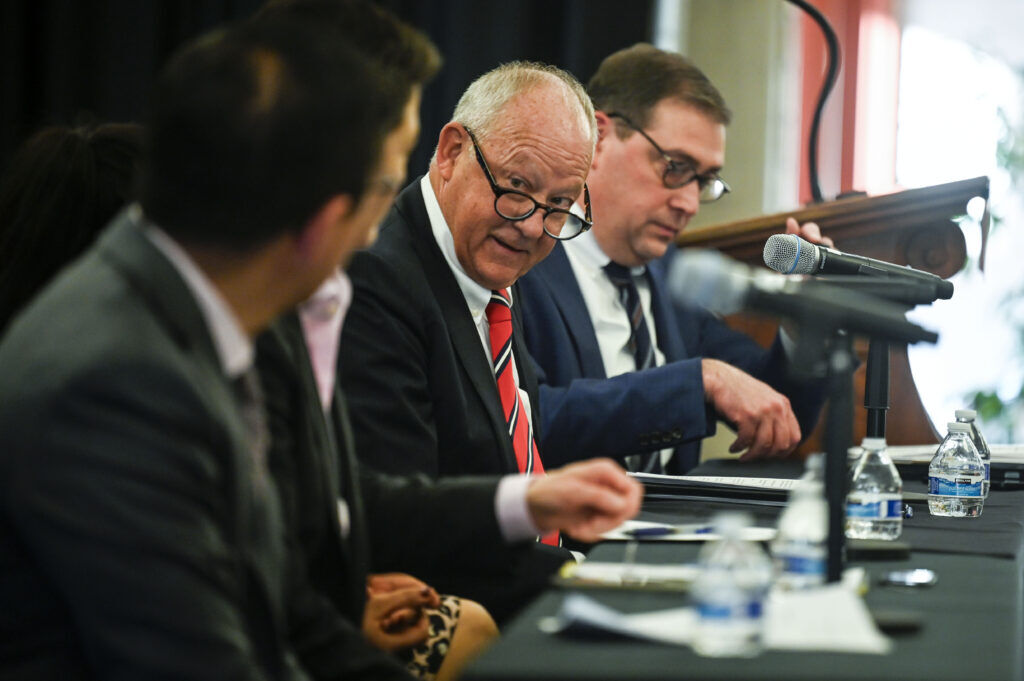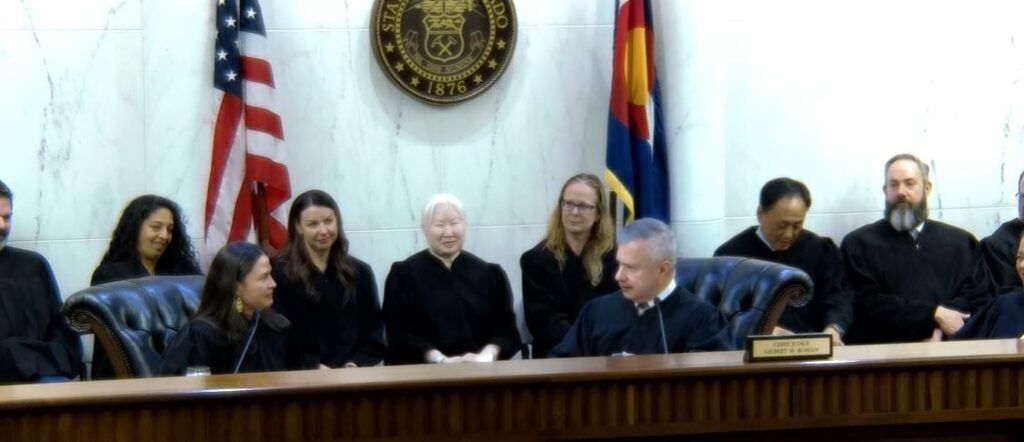Judges speak about public trust and criticism, ICE’s warrantless arrests under scrutiny | COURT CRAWL

Welcome to Court Crawl, Colorado Politics’ roundup of news from the third branch of government.
A handful of federal and state judges spoke last week about trust and communications challenges with the public, plus a federal judge seemed to believe immigration authorities are making warrantless arrests in violation of the law.
‘Put our heads down’
• Last week, there were two back-to-back events featuring state and federal judges that focused on the public’s trust in and understanding of the judiciary, as well as what judges are supposed to do in the face of political attacks from the legislative or executive branches.
• “I don’t think we should respond. Entering into political discourse is not our job and, in fact, it could be viewed as a violation of our code of conduct,” said Judge Jaclyn Casey Brown of the Court of Appeals. “In my view, we stay the course, put our heads down.”
• “Someone goes out there on social media and says, ‘Judge Chung is a terrible person. He got it wrong and I think he needs to suffer the consequences,’ I can’t jump on TikTok after that and say, ‘No, I really did get it right’,” echoed U.S. Magistrate Judge Cyrus Y. Chung.
• Chief Justice Monica M. Márquez said she is proactively exploring ways to increase judicial security by looking to Maryland, which passed a judicial security law in 2024 only after a litigant murdered a trial judge.
• “What you don’t see day to day are the really tense encounters that our front window court staff are having now with litigants who are angry,” she said.
• Judge Timothy M. Tymkovich of the U.S. Court of Appeals for the 10th Circuit said that, in his view, “I do not think we’re in a judicial crisis. I think that we’re part of the normal ebb and flow of disagreement over case law. Now, I would say, I think the polarization seems greater now than it has in the past and I think we all have an opinion about the sources of that. Certainly, social media and the fracturing of news information seems to affect part of that conversation. So, maybe we’re in a new-ish frontier.”

Supreme Court action
• The Colorado Supreme Court seemed hesitant to deem lifetime sex offender registration “punishment,” despite its consequences for a person’s privacy and liberty. Simultaneously, the justices were more receptive to finding one specific defendant’s lifetime registration to be disproportionate.
• The justices were open to concluding rental car companies that offer insurance policies are “insurers” who can be liable for failing to pay out benefits.
• The Supreme Court considered where to draw the line when an expert doesn’t explicitly violate the rule that one witness can’t comment upon another witness’s truthfulness, but they come pretty close to doing so.
• With the oral arguments that happened in eight cases last month, Justice Carlos A. Samour Jr. was absent for two and Justice Melissa Hart was absent for all of them.
Heard on appeal
• The state’s Court of Appeals acknowledged it was a constitutional violation for a judge to decide whether a defendant satisfied the criteria for a more severe “three strikes” sentence, as opposed to a jury. Nonetheless, the evidence clearly showed he was eligible for one.
• A Jefferson County judge improperly imposed lifetime sex offender registration on a defendant without explaining why.

In federal news
• The 10th Circuit concluded a judge was wrong to believe he had to sentence a kidnapping defendant to the mandatory minimum applicable to violent crimes.
• In a rare occurrence, a self-represented, incarcerated plaintiff proved at trial that a federal prison guard battered him. A judge awarded the plaintiff $10,000.
• U.S. Magistrate Judge N. Reid Neureiter released the annual statistical report about Colorado’s federal trial court. Among the trends: civil filings are slightly up, time to trial is slightly up, conviction rates in felony cases are slightly up and the percentage of civil litigants consenting to magistrate judges hearing their cases remains relatively low.
• During a two-day hearing, a federal judge heard “clear evidence” that U.S. Immigration and Customs Enforcement is violating the law on warrantless arrests by not determining whether a person is a probable flight risk before taking them into custody. However, before issuing an injunction, the judge must consider if the plaintiffs have standing, whether there is an official policy at issue and what type of injunction is permitted.
Vacancies and appointments
• The governor appointed La Plata County Court Judge R. Reid Stewart to the Sixth Judicial District Court (La Plata, Archuleta and San Juan counties), where he will succeed retiring Chief Judge Jeffrey Wilson.
• The governor also selected San Juan County Court Judge Anthony D. Edwards to succeed now-District Court Judge Justin P. Fay in his prior role as the Archuleta County Court judge.
• Applications are due by Nov. 25 to succeed retiring District Court Judge Elizabeth B. Volz in the 23rd Judicial District (Douglas, Elbert and Lincoln counties).
Miscellaneous proceedings
• Defense lawyers for a man facing a second trial in Boulder County for a 1994 murder are seeking to link alleged police missteps in that case to the investigation of JonBenét Ramsey’s death two years later. However, a judge believed the requested materials were unnecessary.
• Nebraska has accused Colorado of stealing its water in a filing to the U.S. Supreme Court in litigation over a proposed northeastern Colorado canal.













